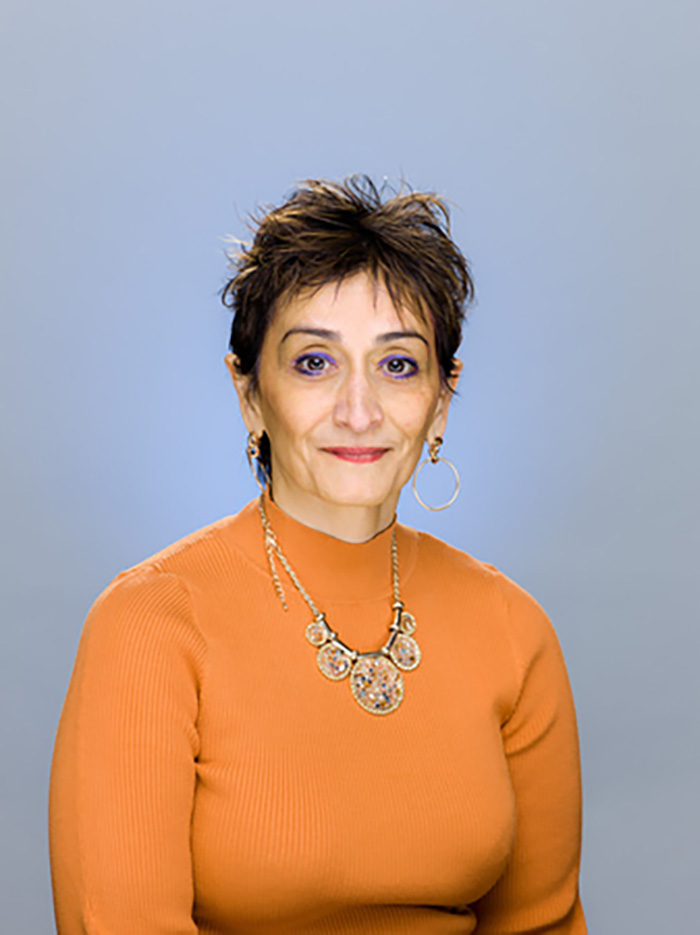Mandana Vahabi, a champion of equitable access to reproductive health care for women, has been appointed Professor at the University of Toronto’s Lawrence Bloomberg Faculty of Nursing, and Women’s Health Research Chair at Unity Health Toronto health care network, a jointly held position at the two institutions. She began her new role on September 1, 2024.
“I am honoured to be joining Bloomberg Nursing and Unity Health Toronto as a full professor and as the Women’s Health Research Chair. This position not only aligns with my commitment to advancing health equity but also demonstrates the focus of both institutions on supporting the care needs of diverse communities. I am excited to work together with students and faculty to continue to have an impact on women’s health,” says Vahabi who is also an alumna of Bloomberg Nursing having completed her PhD in 2003.
The Women’s Health Research Chair is made possible through the generosity of the Government of Ontario and St. Michael’s Hospital, a site of Unity Health Toronto. With this support, the Women’s Health Research Chair facilitates the integration of research, education, and clinical practice in advancing access and equity in women’s health. Vahabi’s research will be based at St. Michael’s Hospital’s MAP Centre for Urban Health Solutions.
At Bloomberg Nursing, Vahabi joins a prestigious group of donor-funded, endowed research chair holders that highlight the significant role the Faculty plays in improving patient and population health on a global stage.
“We are very pleased to welcome Professor Mandana Vahabi back to Bloomberg Nursing where she first launched her research career as a PhD graduate, and look forward to our shared partnership with Unity Health Toronto as we continue to drive innovation in women’s health forward,” says Robyn Stremler, Dean of the Lawrence Bloomberg Faculty of Nursing.
As a researcher, Vahabi is a leader in addressing critical health disparities among structurally marginalized groups including refugees, immigrants, and sex workers.
She has most recently piloted a research study examining the impact of HPV self-sampling tests as an alternative to pap tests, to improve access to cervical cancer screening for women. As Ontario looks to adopt HPV cancer screening in replacement of traditional pap tests, Vahabi is currently advocating for the inclusion of HPV self-sampling tests as part of this new cancer screening guideline.
“Allowing women and those with a cervix to self-sample for HPV removes barriers to care access and gives women a sense of bodily autonomy. Here in Canada and around the world, the reproductive health of women is scrutinized without including women in decision-making about their own bodies. Using this self-administered test recognizes the values and care needs of many different cultural and ethno-racial groups and gives them freedom of choice over their own body and how they choose to receive care,” says Vahabi.
Cervical cancer is primarily caused by the Human Papilloma Virus (HPV) and a transition to HPV screening would allow for more accurate detection of the disease and a person’s subsequent cancer risk. The new testing method would also increase the length of time between screening tests, from three to five years.
Many women avoid pap tests Vahabi says, for a variety of reasons including lack of knowledge and factors related to sexual violence and trauma, in addition to distrust of health care providers. A self-sample test, done in the privacy of the individual’s own home would greatly empower them.
For Vahabi, research alone is not enough, but translating that knowledge into actionable policies is crucial for lasting change. Nurses she believes, are uniquely positioned to shape public health strategies and address these structural challenges facing women’s health. It is her hope, she adds, that the future of nursing will involve the implementation of innovative care models that prioritize health equity including improving health for women and underserved populations.
“Unity Health Toronto is committed to promoting and finding solutions for health equity and improving health outcomes for those facing barriers accessing care. We are thrilled to have Mandana join our MAP Centre for Urban Health Solutions at St. Michael’s and further advance our world leading research centre dedicated to creating a healthier future for all,” says Sonya Canzian, Executive Vice President Clinical Programs, People, and Chief Nursing & Health Professions Officer. “We are also looking forward to Mandana’s contributions to building our nursing research capacity through mentorship and leadership.”
One of Vahabi’s key priorities is to mentor and support emerging scholars to foster a diverse and inclusive research environment and encourage a broad range of perspectives. For her undergraduate students at Bloomberg Nursing, she is eager to help them broaden their knowledge about their own ability to impact the health of those around them.
“I really want my students to understand the critical importance of addressing health disparities and to recognize the wider role they can play in advancing justice and equity, in their own careers as nurses, and in their communities, says Vahabi, “if I can advance this understanding, then I have done my job.”
